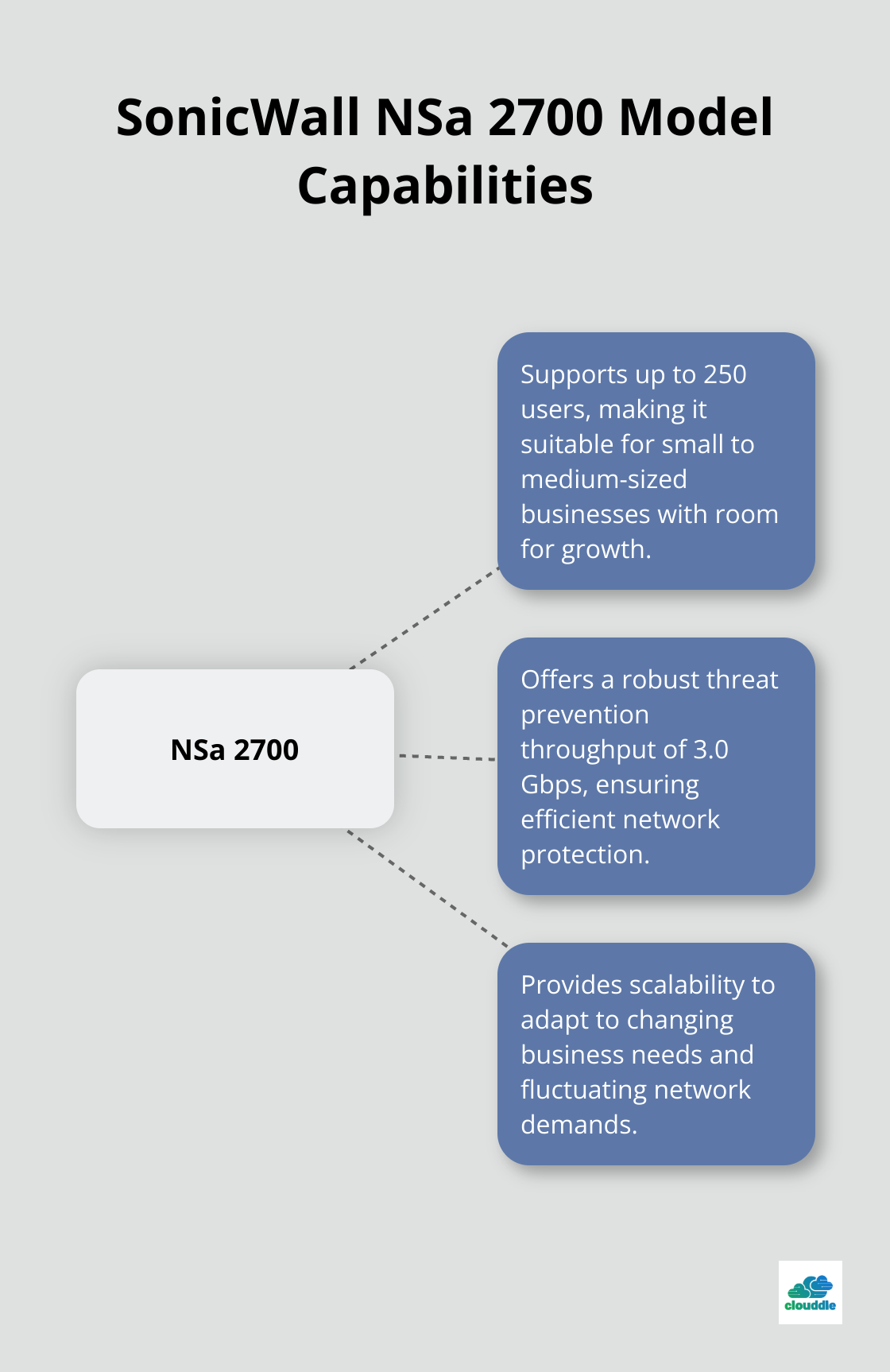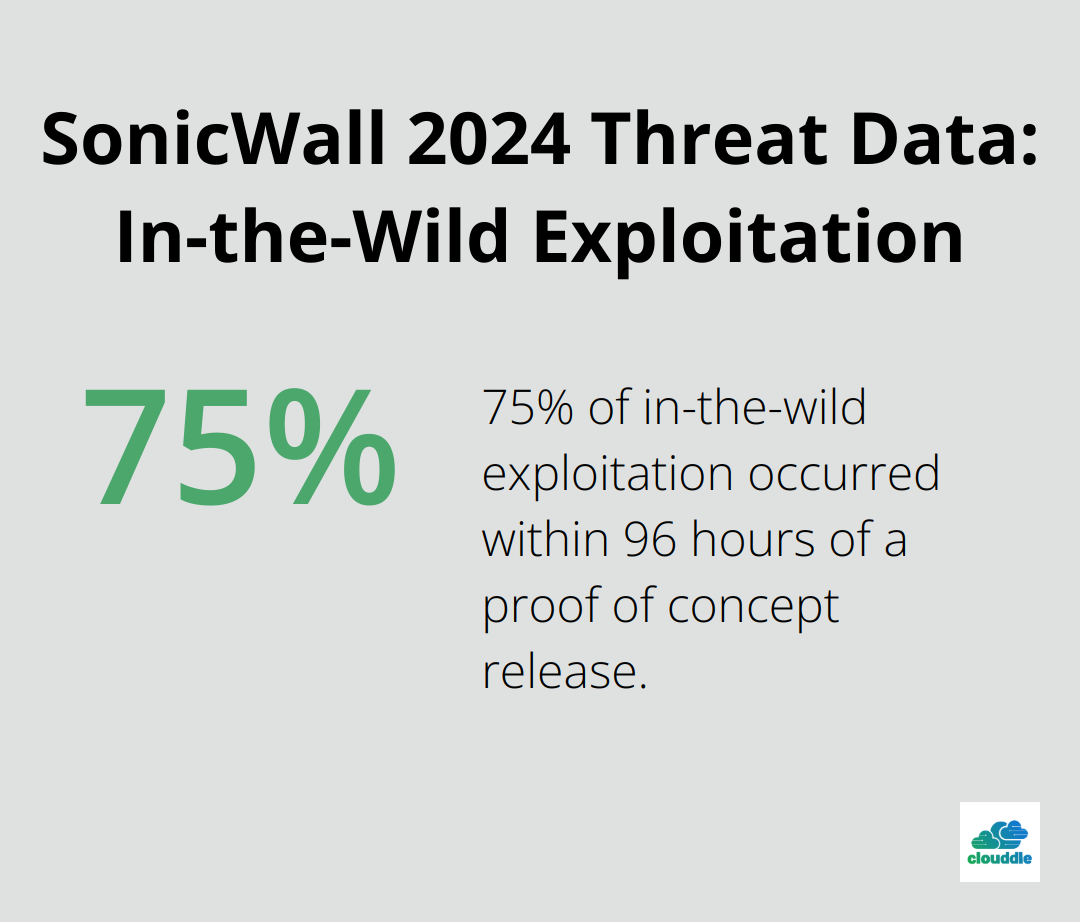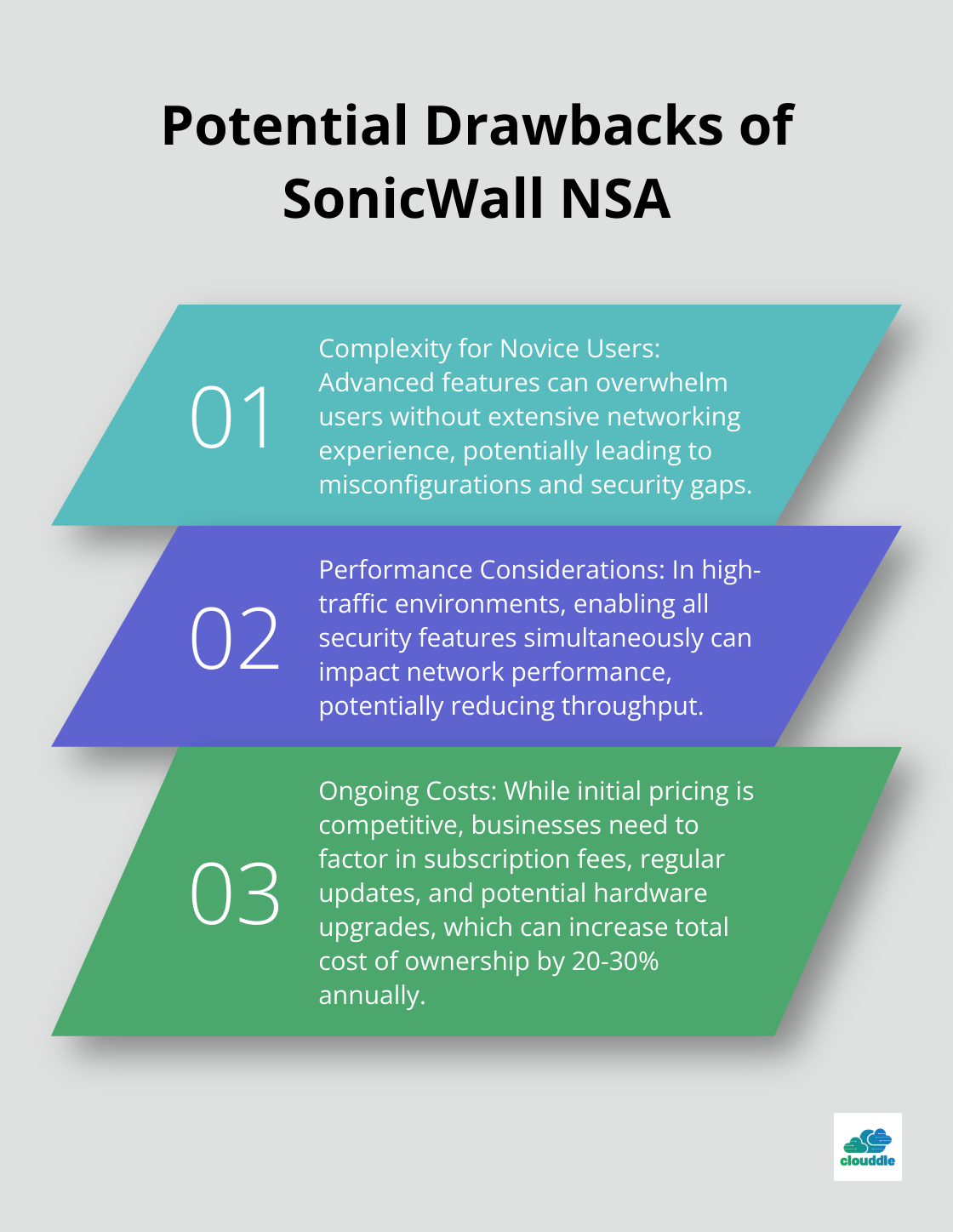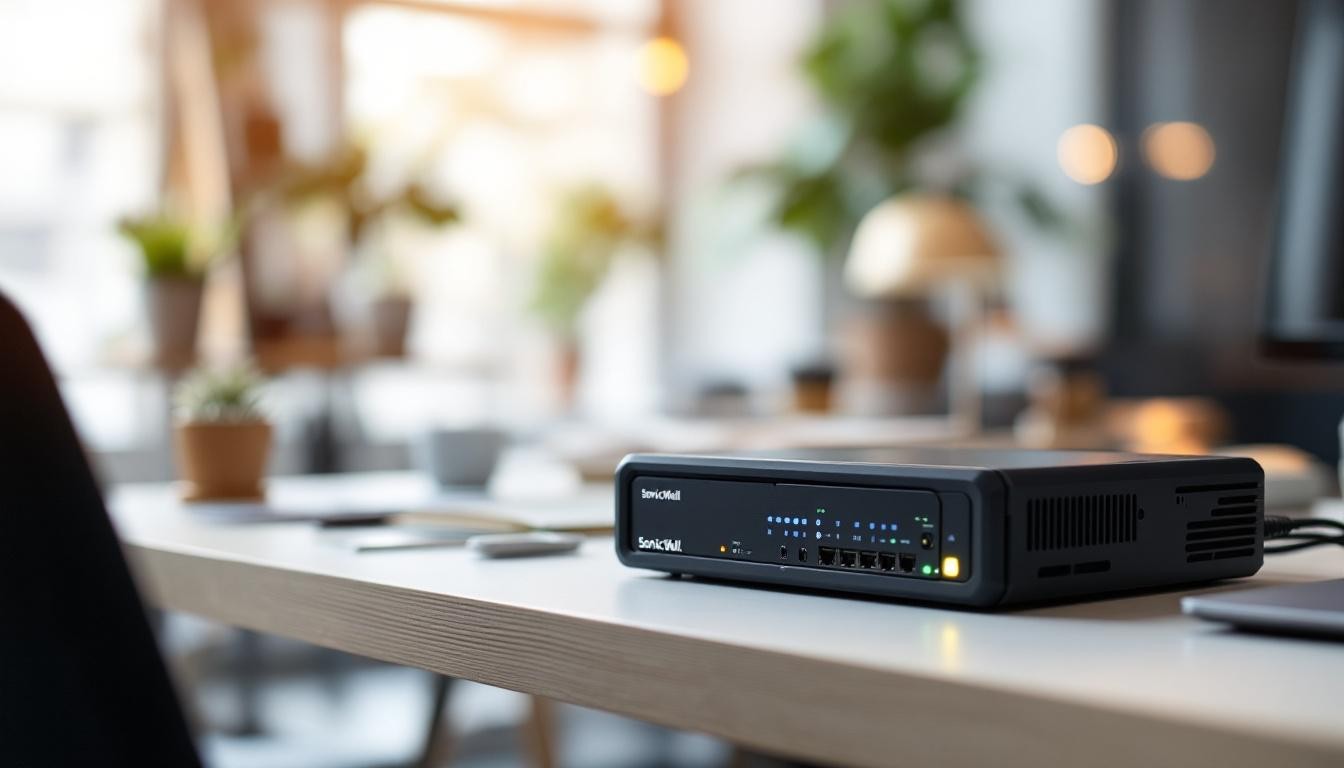At Clouddle, we often field questions about network security solutions. One product that frequently comes up in discussions is the SonicWall Network Security Appliance.
This powerful tool has gained attention for its robust features and potential to safeguard business networks. But is it the right choice for your organization?
In this post, we’ll examine the pros and cons of SonicWall’s offering to help you make an informed decision.
What Does SonicWall’s Network Security Appliance Offer?
Advanced Threat Protection
SonicWall’s Network Security Appliance (NSA) stands out with its Real-Time Deep Memory Inspection (RTDMI) technology. This innovative feature detects and blocks zero-day threats, providing robust defense against emerging threats. By forcing malware to reveal its weaponry into memory, the RTDMI engine proactively detects and blocks mass-market, zero-day threats.
User-Friendly Management
SonicWall designed the NSA with simplicity in mind. The appliance runs on SonicOS 7.0, offering a modern, intuitive interface for easy management. This benefits small to medium-sized businesses (SMBs) that may lack extensive IT resources. The enhanced dashboard and basic DNS security features, including a sinkhole service which intercepts and redirects malicious DNS queries, contribute to its user-friendly nature.
Scalability for Business Growth
The NSA series adapts to your business needs. For example, the NSa 2700 model supports up to 250 users and offers a threat prevention throughput of 3.0 Gbps. This scalability makes it an attractive option for businesses anticipating growth or those with fluctuating network demands.

Target Market and Ideal Use Cases
SonicWall’s NSA suits SMBs and distributed organizations particularly well. Its combination of robust security features and user-friendly management provides enterprise-grade security without the complexity often associated with such solutions.
Competitive Landscape
When comparing SonicWall’s NSA to other solutions, consider factors like performance, price, and ease of use. While competitors like Fortinet and Cisco may offer more advanced features for large enterprises, SonicWall often provides a more cost-effective solution for SMBs.
The NSa 2700’s starting price of around $2,159 (without subscriptions) competes well in its class. However, businesses heavily invested in a Cisco ecosystem might find integration with SonicWall products less seamless.
Many clients in the hospitality and multi-family dwelling sectors benefit from SonicWall’s balance of security and simplicity. However, for those requiring more specialized solutions or integration with specific systems, exploring tailored Network as a Service (NaaS) offerings (like those provided by Clouddle) can provide a more customized approach to network security.
As we move forward, let’s examine the specific advantages that SonicWall’s Network Security Appliance brings to the table, and how these benefits can impact your business operations.
Why SonicWall NSA Stands Out
Cutting-Edge Threat Detection
SonicWall’s Network Security Appliance (NSA) sets a new standard in cybersecurity with its Real-Time Deep Memory Inspection (RTDMI) technology. This feature proactively detects and blocks zero-day threats by analyzing malware behavior in memory. SonicWall’s 2024 threat data shows that 75% of the time in-the-wild exploitation occurred within 96 hours of a proof of concept (PoC) being released, highlighting the importance of rapid threat detection and response.

Streamlined Deployment and Management
SonicWall designed the NSA with user-friendliness as a priority. The SonicOS 7.0 interface simplifies firewall management, which reduces the learning curve for IT teams. This benefit particularly helps small to medium-sized businesses (SMBs) with limited IT resources. The zero-touch deployment feature allows simplified onboarding of hundreds of units in minutes, which saves time and reduces potential configuration errors.
Flexible Growth Options
The NSA series scales effectively to accommodate business expansion. For example, the NSa 2700 model supports up to 250 users and offers a threat prevention throughput of 3.0 Gbps. This scalability ensures that the initial investment continues to provide value as an organization evolves.
Budget-Friendly Security
SonicWall’s NSA provides enterprise-grade security features at an accessible price point for SMBs. The NSa 2700 model starts at around $2,159 (without subscriptions), which offers a competitive total cost of ownership. This affordability doesn’t sacrifice functionality – the NSA includes features like integrated Wi-Fi security and Secure SD-WAN capabilities, which often require additional hardware investments with other vendors.
Industry-Specific Considerations
While SonicWall’s NSA offers compelling benefits, specific business needs require careful consideration. Organizations in sectors like hospitality or multi-family dwellings might need more tailored solutions. In such cases, exploring Network as a Service (NaaS) options can provide a more customized approach to network security. Clouddle’s NaaS offerings, for instance, combine networking, entertainment, and security in a comprehensive package without upfront investment, which might better suit these specialized needs.
The choice between a traditional network security appliance like SonicWall’s NSA and a more tailored NaaS solution depends on various factors (e.g., industry, scale of operations, specific security requirements). Let’s examine some potential drawbacks of the SonicWall NSA to provide a balanced perspective on this security solution.
Potential Drawbacks of SonicWall NSA
Complexity for Novice Users
SonicWall NSA’s advanced features can overwhelm users without extensive networking experience. The learning curve proves steep, especially when users configure complex rules or utilize advanced threat protection features. This complexity might lead to misconfigurations, potentially creating security gaps if not properly managed.
Performance Considerations
In high-traffic environments, enabling all security features simultaneously can impact network performance. For instance, enabling deep packet inspection on all traffic might reduce throughput. The NSa 2700 model provides advanced protection against modern cyber threats for mid-to-large sized businesses and organizations.
Limited Customization for Some Models
While SonicWall NSA provides a range of features, some models have limitations in terms of customization. This can create problems for organizations with unique network architectures or specific compliance requirements. Certain models may not support advanced routing protocols or have limited VPN options (which could be deal-breakers for some businesses).
Integration Challenges
Organizations heavily invested in other vendor ecosystems might face integration difficulties with SonicWall NSA. This holds particularly true for businesses using Cisco or Fortinet products extensively. The lack of seamless integration can increase management complexity and potentially create security gaps.
Ongoing Costs
While the initial price point of SonicWall NSA competes well in the market, businesses need to factor in ongoing costs. Subscription fees for advanced features, regular updates, and potential hardware upgrades can accumulate over time. Industry reports suggest that the total cost of ownership for network security appliances can increase by 20-30% annually due to these ongoing expenses.

Final Thoughts
The SonicWall Network Security Appliance offers robust features for small and medium-sized businesses seeking comprehensive network protection. Its strengths include advanced threat detection, user-friendly management, and scalability, which make it an attractive option for organizations with growing security needs. The competitive pricing also positions it as a cost-effective solution for businesses that want to enhance their cybersecurity posture.
Users should weigh these benefits against some notable drawbacks. The complexity of advanced features may challenge less experienced IT teams, potentially leading to misconfigurations. Performance impacts in high-traffic environments and limited customization options for certain models are also factors to consider.
Organizations in sectors like hospitality or multi-family dwellings, where specialized networking and security needs are paramount, should explore alternative solutions. Network as a Service (NaaS) offerings from Clouddle provide a more tailored approach, combining networking, entertainment, and security without upfront investment. This can benefit businesses that require industry-specific solutions or those who want to avoid the complexities of managing hardware appliances.


